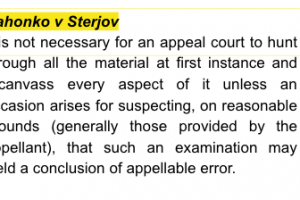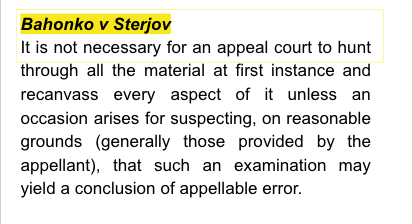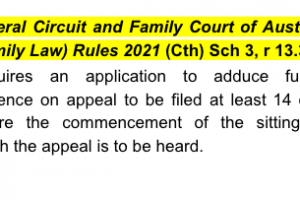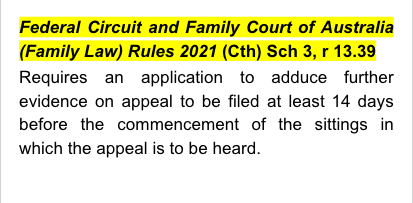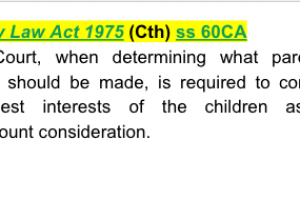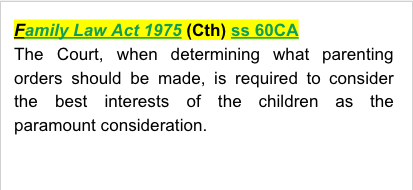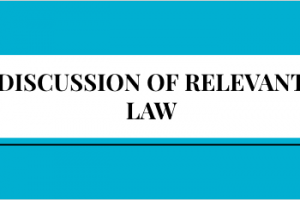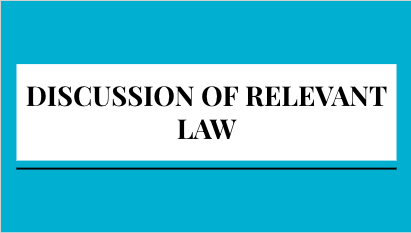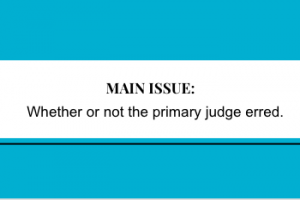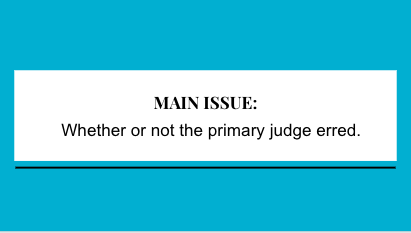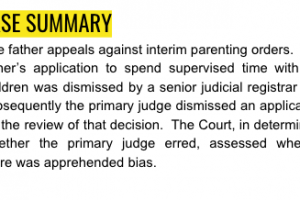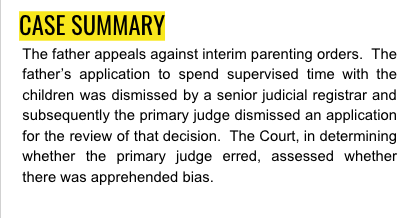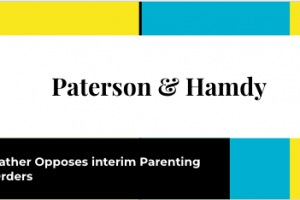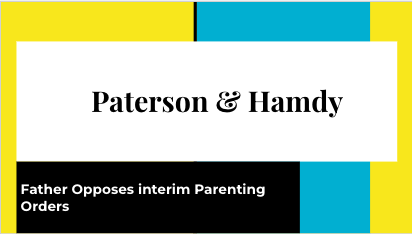- · 4800 friends
Father Opposes interim Parenting Orders

Paterson & Hamdy [2022] FedCFamC1A 118 (29 July 2022)

The father appeals against interim parenting orders. The father’s application to spend supervised time with the children was dismissed by a senior judicial registrar and subsequently, the primary judge dismissed an application for the review of that decision. The Court, in determining whether the primary judge erred, assessed whether there was apprehended bias.

Facts:
Mr Paterson (“the father”) has appealed against interim parenting orders made by a judge of the Federal Circuit and Family Court of Australia (Division 1) on 1 April 2022 in proceedings between Ms Hamdy (“the mother”) and himself. The effect of the orders was that the father’s application to spend supervised time with the parties’ two children, born in 2005 and in 2010, was dismissed on the review of orders made by a senior judicial registrar. The father last spent time with the youngest child in 2015 and with the elder child when she visited him in gaol in February 2016. The father was incarcerated in mid-2015 and released in mid-2019.
The orders sought by the father were that the younger child spends supervised time with him once every two weeks, as well as a 30-minute telephone call each alternate week. The father was content for the elder child to spend time and communicate with him in accordance with her wishes. The father also sought orders that the parties and both children attend a family therapist for the purpose of improving the children’s relationship with the father. The primary, but not sole, basis on which the application was refused, was that the children had not spent any time with the father for some years.
The primary judge considered that it was not appropriate to change that on an interim basis, especially having regard to the children’s firm and unequivocal views that they did not wish to spend time with the father and that they remembered him as “scary”. The primary judge accepted, for the purpose of the application, the evidence of the Family Report writer that the younger child would experience supervised time with the father as stressful and overwhelming and that the Court may need to prioritise his psychological safety over any relationship with the father. The father sought to file an Application in an Appeal seeking to adduce further evidence and an accompanying affidavit.
The appeal registrar refused to file the documents. At the hearing of the appeal, the father sought leave to rely on them. That application faced a number of difficulties and was dismissed.

Issue:
Whether or not the primary judge erred.

Applicable law:
Family Law Act 1975 (Cth) ss 60CA - provides that the Court, when determining what parenting orders should be made, is required to consider the best interests of the children as the paramount consideration.



Analysis:
The father submitted that bias had been established because the primary judge did not ask questions about the alleged family violence, the alleged deficiencies in the Family Report and did not ask the mother’s lawyer any questions. Even if that was correct, it falls well short of demonstrating even an apprehension of bias.
A judge is entitled to seek such assistance from parties and their representatives as he or she thinks necessary and desirable to resolve the proceedings before them. Extensive evidence came from a psychological assessment of the mother by her treating psychologist, which recorded extensive allegations by the mother of physical, verbal and emotional violence at the hands of the father.
Such allegations were repeated in a Child Inclusive Conference Memorandum dated 3 June 2019 and a Family Report of 17 December 2020. The Family Report writer recorded allegations made by the eldest child that she had some memories of the father having been violent towards the mother and that “what [she] can remember is that [the father] is scary”.
His Honour took into account the fact that, whether or not there had been a history of family violence, the children considered the father to be scary and there was a risk that being brought suddenly into contact with the father would be a traumatic experience which may be harmful to them. It is clear that his Honour considered the evidence of the father in the manner in which he was constrained to do so by the application of the above relevant authorities.
Conclusion:
Leave to file the Application in an Appeal dated 28 June 2022 is refused. The appeal is dismissed. The appellant is to pay the respondent’s costs fixed in the sum of $3,696.


